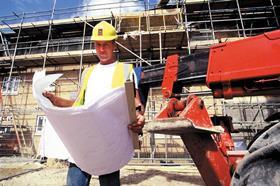Arcadis says recruitment need is equivalent to employing one new worker every 77 seconds

Construction firms need to recruit more than two million staff in the next five years if the UK were to deliver the homes and infrastructure the country actually needs, according to a new report by Arcadis which also found some trades would see average incomes double.
The report says that building out the government’s entire infrastructure pipeline alongside 275,000 homes per year would require more than 60,000 carpenters and joiners, 47,000 plumbers and 40,000 electricians each year until 2021. Arcadis said 275,000 homes was what would be required to meet current need while also eliminating the backlog from the last decade.
Both London and the South east regions would have to recruit in excess of 50,000 each every year for the next five years, with the total UK recruitment figure being 407,000.
The report says the figure would be even higher in the event of a “hard Brexit” in which EU workers are subject to a points-based immigration system, meaning a further 215,000 people would have to be found in the period.
The figures, which take into account the impact of those predicted to leave the industry in the period, are based on assuming the government manages to hit all of its targets for public sector, private infrastructure and housebuilding construction.
Two They are far higher than the predictions produced by the Construction Skills Network of the workforce requirement from best estimates of actual future construction output. Earlier this month this forecast, which also makes different assumptions about productivity and the rate of retirement of existing staff,predicted that an addition 35,740 would be needed each year to 2021.
The overall recruitment need identified by Arcadis is equivalent to employing one new worker every 77 seconds.
James Bryce, Arcadis director of workforce planning, said the industry was facing a “skills gulf” and added: “Construction employment is already down 15% on 2008 and, quite simply, if we don’t have the right people to build the homes and infrastructure we need, the UK is going to struggle to maintain its competitive position in the global economy.
“As part of any Brexit deal, the government can help by looking to secure the rights of EU workers currently operating in British construction, simplifying the visa system and minimising the tax burden on workers and business. If this fails to happen, many of the projects that the British government have earmarked for economic stimulus could prove more difficult and costly to resource.”



























No comments yet